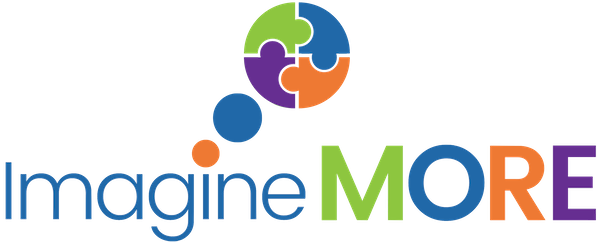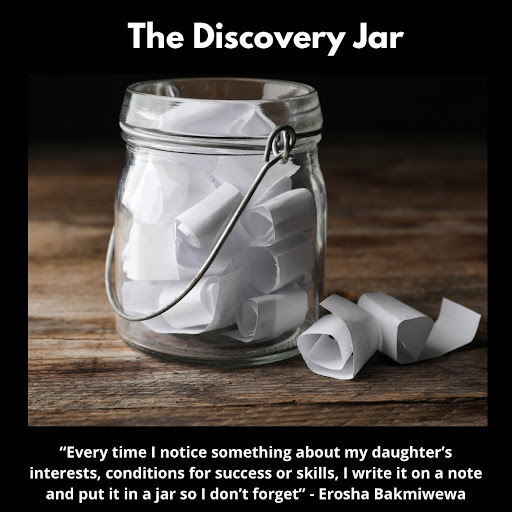If you're exploring employment for a person with an intellectual disability, don't miss this workshop by Milton Tyree! Over 90 minutes, he explains the Discovery process: what it is, why it works, and how to get started. Download the resources underneath the video.
When it comes to work and careers, there is an abundance of opportunities for employment. But the current model of employment support services lacks the appropriate funding and training to follow a customised employment approach to develop jobs for people with intellectual disability and autism. If adults with disability work at all, they are most likely to work in low-paid, part-time jobs, which are often insecure and offer no opportunity for growth. And they’ll most likely work exclusively alongside other people with disability in roles that don’t necessarily hold their interest or match their skills.
As a result of low societal expectations, people with intellectual disability are often trapped in economic uncertainty and hardship.
It doesn’t have to be this way.
Across Australia, we’re seeing young people with intellectual disability embark on employment journeys that include
- meaningful work experience to explore their interests
- securing valued roles in open employment (in science labs, accounting firms, restaurants, hair salons, universities, and many other locations)
- continuing their learning through online courses, traineeships, apprenticeships or University to build on their knowledge and improve their skills in areas that interest them
- turning their interests and skills into income-generating micro-enterprises.
Plentiful, undeniable proof exists to show that people with disability can work and can make a valuable contribution to their workplaces and community.
Unfortunately, people with intellectual disability and autism often have a very limited experience of the world. This means it can be harder for the person and those around them to be able to
- identify what lights the person up
- know where their interests lie
- know what they might contribute to the world of work.
That’s where the process of Discovery becomes important.
Discovery is an evidence-based and widely-used approach that helps a person with disability
- uncover their potential skills, interests, and workplace conditions that help them to thrive and
- share this knowledge with their family and supporters.
It’s a process that reveals employable skills that can then be matched to the needs of a workplace.
Through Discovery, people with intellectual disability are able to take on workplace roles that are highly valued and that pay at least Award wages.
And it’s a process that can start at any age (the earlier, the better, but it’s never too late).
About this workshop
This webinar was presented by Milton Tyree, a highly-respected leader in the area of Customised Employment.
You will learn
- about the benefits of starting the employment process with the person, not the job
- how to discover any person’s interests and potential workplace contributions – even if they communicate without words
- about the importance of challenging conventional wisdom when it comes to disability employment
- how to translate everyday life activities into employable traits
- how to move from Discovery towards paid employment.
This webinar is essential viewing for anyone who wants to help a person with intellectual disability or autism enjoy all the benefits of being gainfully employed, including
- Family members
- Friends and colleagues
- Educators and careers professionals
- Employment service providers
- Job supporters
Below the video, you’ll find
- Links to the resources mentioned in the workshop
- Some additional information about the process of Translation
- Milton Tyree’s biography
Resources
Download the resources mentioned in this video.
Download the presentation slides (PDF, 5MB)
Download the editable Discovery Record (Word, 47 KB)
Download an example of the Discovery Workbook in action (PDF, 112 KB)
Download the notes from the breakout room conversations (PDF, 69 KB)
Download the notes from the breakout room conversations (Word doc, 16 KB)
Translation: Unearthing the potential for work from everyday life
In July 2023, we hosted two follow-up webinars about the Discovery process. This gave attendees and opportunity to discuss the process and ask questions.
We spoke at length about translating everyday activities into work opportunities. Here is some information you might find useful. This information has been adapted from Marc Gold & Associates’ “Discovery: Charting the Course to Employment”
********
The key part of the Discovery process is translating everyday activities into job opportunities. Through Discovery, we can learn important information about a person’s
- conditions for success
- work interests, and
- potential contributions.
Employers will find this information valuable as they consider how the job seeker will contribute to their business.
The first step of translation is the collection of data from and about the jobseeker. This can be done through interviews, observations, and conversations.
Next, we translate this information into actionable insights for creating customised jobs.
This process requires seeing logical connections between everyday life and a fulfilling job. It also fosters a mindset of possibility.
Conditions for Success
Successful employment depends on certain workplace conditions aligning with the jobseeker’s needs. Employment will only be successful when essential conditions for the jobseeker are met. Everyday life can provide clues about what these conditions for success might be.
It’s important to consider
- positive conditions
- conditions to avoid.
For instance:
- Observation: Jenny works on her art amidst her boisterous siblings.
- Translation: Jenny could focus well in a noisy workplace.
Work Interests
Identifying work interests is a nuanced task. Avoid focusing on job titles. Instead, we should investigate activities the individual enjoys doing. This approach offers a reliable pathway to the job market.
The translation of interests into work potential hinges on tapping into intrinsic motivation.
For instance:
- Observation: James spends hours watching cop shows.
- Translation: James might enjoy working in law enforcement.
Contributions: Highlighting Unique Skills
Employers will want to know how the jobseeker can contribute to their business. Contributions can be discrete tasks, separate from larger activities.
It’s important to identify potential contributions, especially for people who struggle to learn new tasks.
Job seekers with disabilities often engage in complex activities at home. This is why we need to observe people as they engage in activities they enjoy. Careful observations will help you identify tasks that the person is intrinsically motivated to do.
The effort to translate interests into contributions is demanding but rewarding. This work may greatly improve the life path of job seekers with significant disabilities.
For instance:
- Observation: Jenny excels at opening Christmas presents.
- Translation: Jenny can receive materials, open boxes, and prepare stock.
By understanding, observing, and translating a person’s
- skills
- interests, and
- potential contributions,
we can turn ordinary activities into extraordinary employment possibilities. For many people with disability, this turns today’s impossibility into tomorrow’s success story.
Five Translation Ideas
Here are some simplified examples of translating everyday activities into skills and interests. Please note the translation process would typically involve
- more thorough observation
- a deeper understanding of the person’s abilities and interests.
Yet, they give an idea of how everyday activities might be seen as potential work skills or interests.
Robert
Observation:
Robert loves going to the farmer’s market every week. He knows all the vendors by name.
Translation:
Robert may excel in a customer service role in a market environment. He might enjoy a job where he can interact with a variety of people on a regular basis.
Sarah
Observation:
Sarah spends hours sorting and organising her book collection by genre and author.
Translation:
Sarah could thrive in a role that requires
- attention to detail
- organisational skills.
Consider roles such as archive assistant or inventory clerk.
Mark
Observation:
Mark enjoys solving puzzles and often helps his siblings with their math homework.
Translation:
Mark might excel in a job that involves problem-solving. Consider roles such as accounting clerk or data analyst.
Jasmine
Observation:
Jasmine often takes apart old electronics to understand how they work before reassembling them.
Translation:
Jasmine may have a future in a technical role that requires troubleshooting and repair skills. Consider roles such as an electronics technician.
Jack
Observation:
Jack enjoys building sand sculptures at competitions. He loves the interaction with spectators and passers-by to discuss his creation.
Translation:
Jack could excel in roles that involve
- hands-on tasks
- enthusiastically promoting products he supports
- creative problem-solving
- public interaction.
Consider roles such as events management or community art project management.
 The Discovery Jar
The Discovery Jar
This is an approach to Discovery that Erosha Bakmiwewa uses.
“Every time I notice something about my daughter’s interests, conditions for success, or skills, I write it on a note and put it in a jar so I don’t forget.”
About Milton Tyree

Milton helps individuals and organisations include, involve, and appreciate people who are so often unknown, misunderstood, and rejected.
In 2013, Milton received The Marc Gold Award for Employment. This award is presented annually to an individual who has significantly contributed to increasing access to community and integrated employment for people with significant disabilities.
Milton is a Project Associate for the University of Kentucky. He owns Milton Tyree Employment Consulting LLC.




 The Discovery Jar
The Discovery Jar